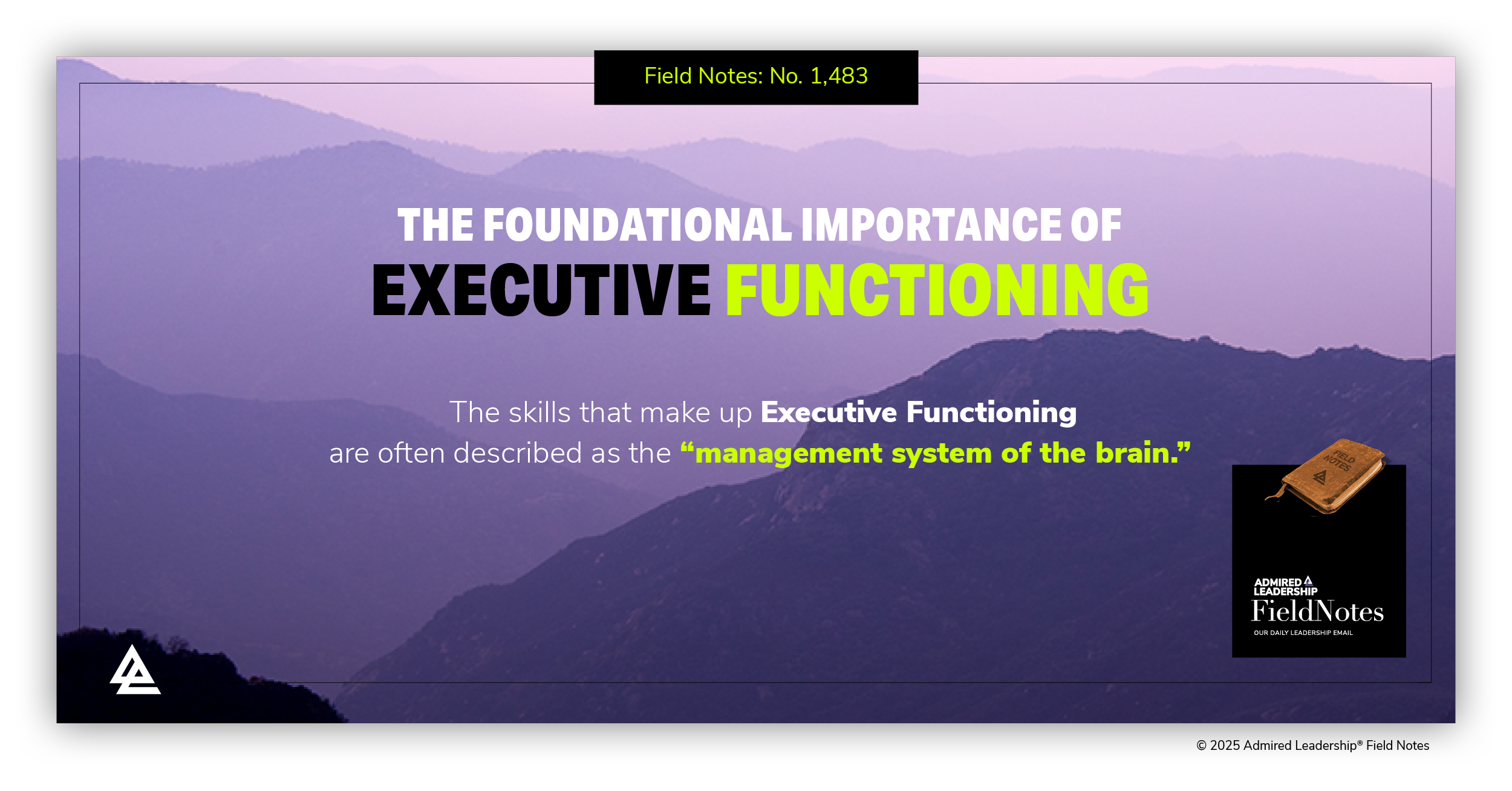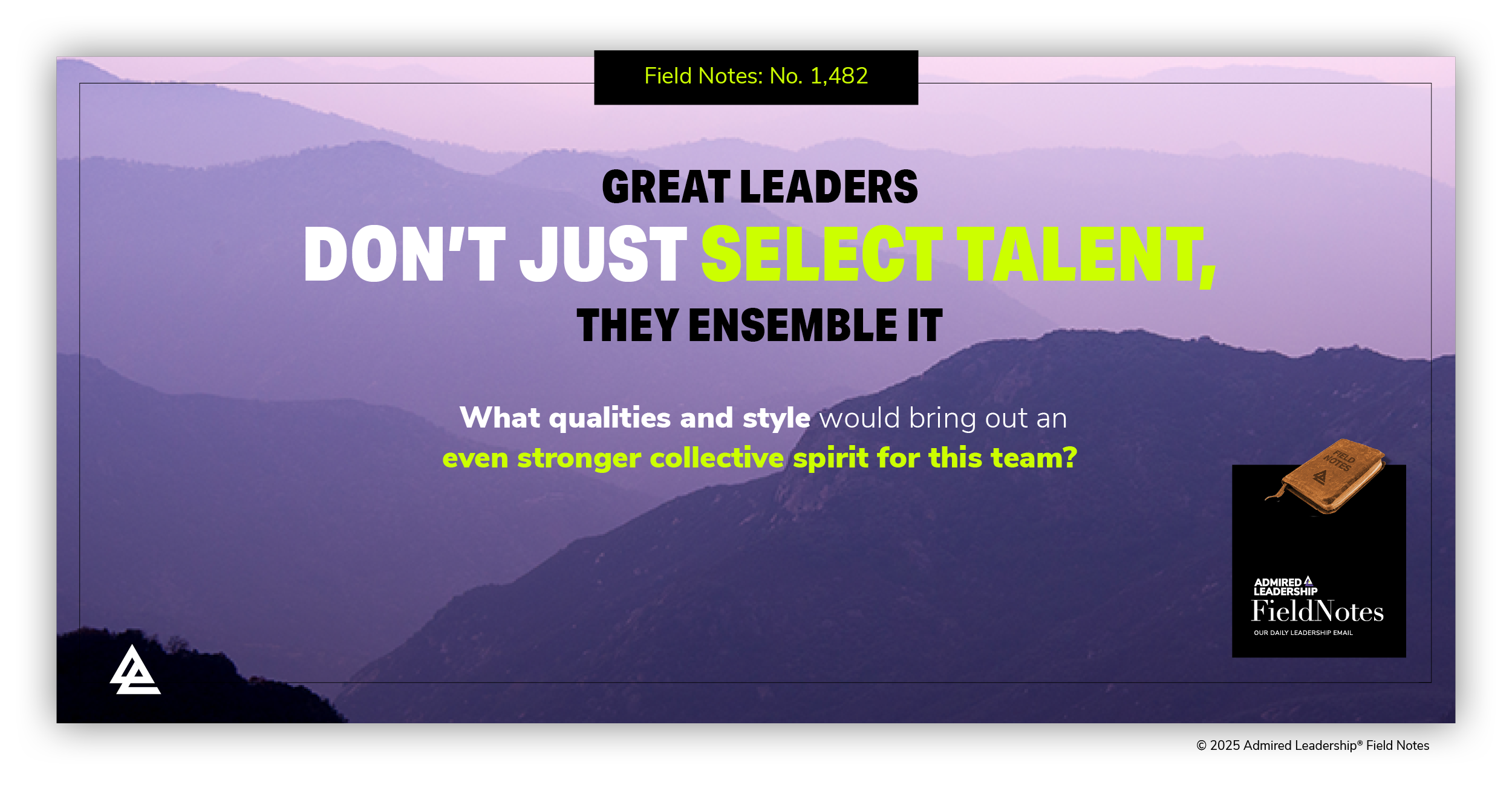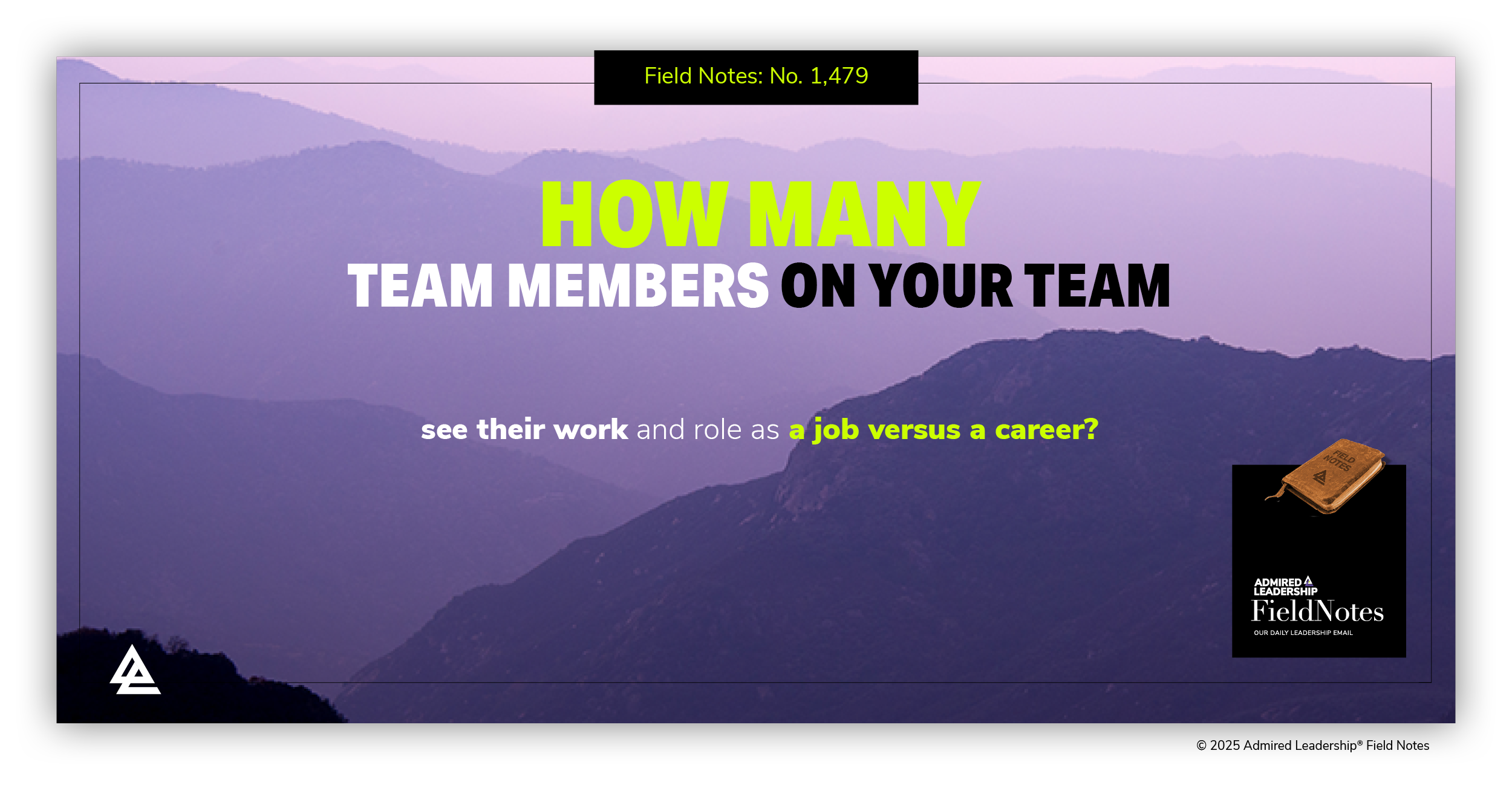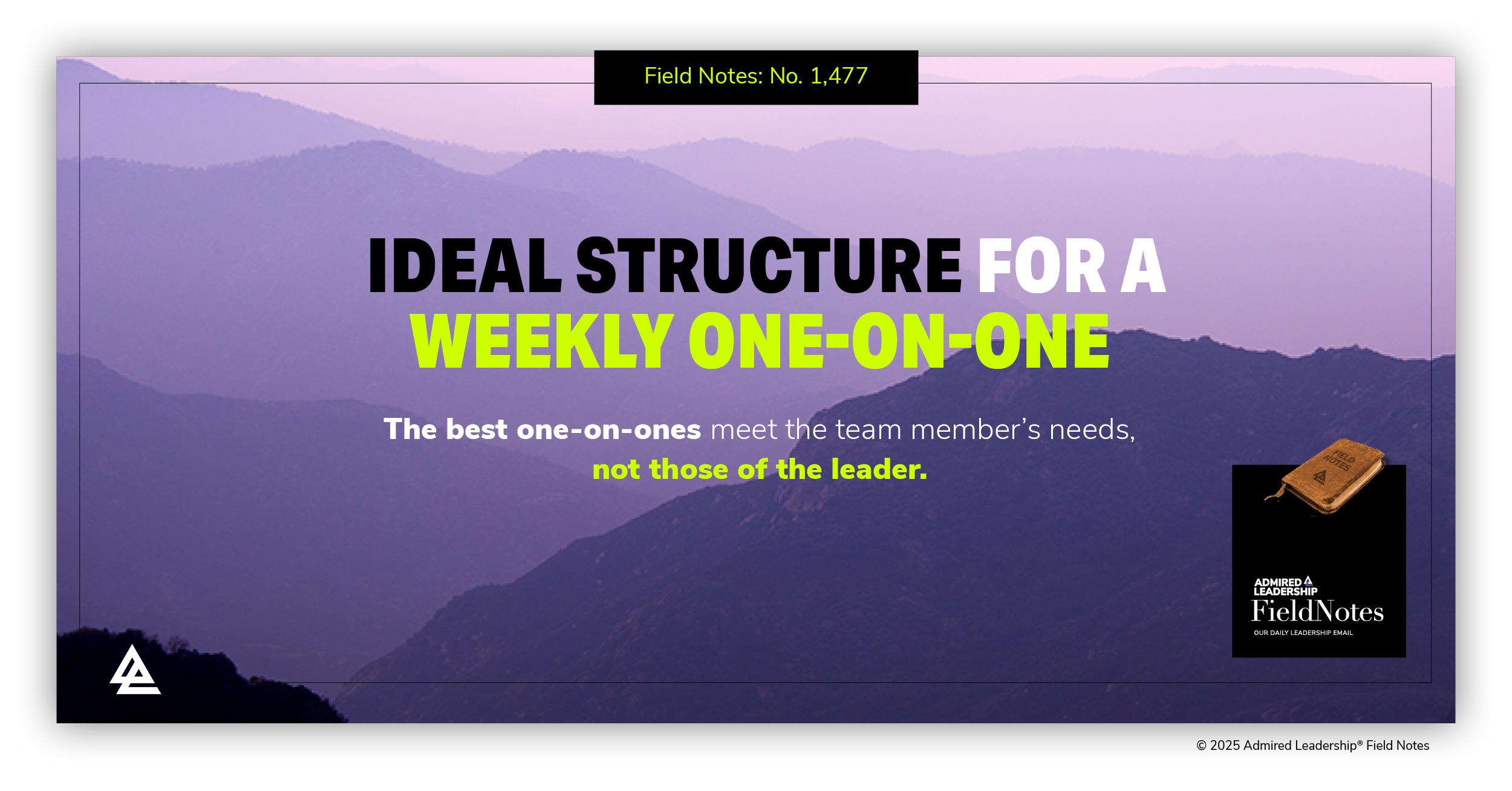Field notes
Field Notes
Our daily Field Notes email is just the kind of jumpstart you need. A fast read. Maybe less than a minute. Because sometimes it just takes one insight to change the trajectory of the day.
Search Field Notes
A successful crew chief, like Knaus, must have a nose for talent. Beyond skill and experience, he looks for team members with the character and personal values that will shine on race day. Knaus is known for an unusual test at the end of his selection process.
After a candidate’s interview, Knaus walks the prospective team member to the parking lot to say goodbye.
And to check out their car.
Executive Functioning refers to higher-level cognitive skills that allow people to manage their thoughts, actions, and emotions to achieve goals. Not surprisingly, those with strong Executive Functioning are better able to adapt to new situations and solve problems they have never encountered before.
Some leaders are great judges of talent. Using their deep experience and a well-developed template of salient qualities, they focus on attributes others miss or overlook. Through questions, observations, and secret tests, they spot extraordinary potential before anyone else does, sometimes even before the performers themselves. Their track record for selecting outstanding performers is plainly superior to everyone else.
Organizations of every kind get things done by assigning specific roles and responsibilities to specific people. In order to ensure that team members know what is expected of them and are held accountable for results, organizations create layers of hierarchy.
When we think of a clutch performance, we often imagine a sports setting where an athlete shows up well under extreme pressure. But clutch performance isn’t reserved for sports. It occurs in organizations and teams as well.
Team members who view their work and role as a job operate very differently from those who see their current position as a stepping stone in a career. Career-minded team members invest more emotional energy in their work, develop their skills more aggressively, engage with work and colleagues more actively, and take more pride in their accomplishments.
Size undoubtedly matters when it comes to making an organizational change, for no other reason than the complexity involved with more people.






